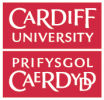© Pint of Science, 2025. All rights reserved.
Come join scientists from Cardiff University’s Schools of Pharmacy and Medicine to find out about the novel and surprising techniques they’re using to improve the lives of patients. From nanomedicines to ninja viruses to synthetic biology, Cardiff University’s life scientists are at the bleeding edge of health research. And they would like to their share stories and research with you!
Could Mimicking Cell Membranes Unlock the Future of Medicine?
Hannah Baird and Matt Colborne
(PhD students, Castell Lab, School of Pharmacy & Pharmaceutical Sciences )
Cell membranes are protective barriers that control what enters and exits cells. Some substances, like antibiotics, can punch tiny holes in these membranes, damaging or killing cells. Using simplified membrane models, we study how proteins interact with membranes and form pores. These models also create droplet compartments for exploring protein production. By adding specific molecules, we trigger protein production and pore formation, enabling droplet communication. This research holds exciting potential for drug development and synthetic biology.
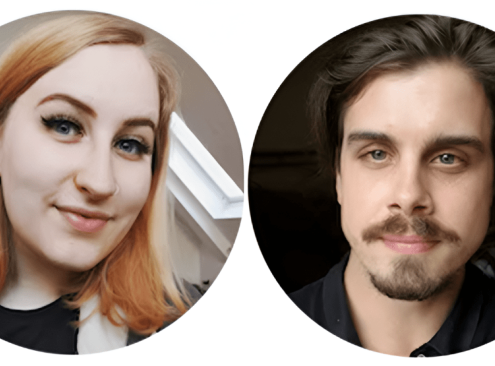
Nanomedicines: from saving the world once to saving the world again
Arwyn Jones
(Professor of Membrane Traffic and Drug Delivery, and Director of Research Innovation & Engagement)
Close your eyes and imagine a round particle with a diameter of 1 mm. Got it? Now try to imagine a particle one hundred thousand times smaller than that. Impossible? This would be a nanoparticle; defined by top scientists as “very small things.” I will discuss how nanoparticles, aside from keeping tennis balls intact when being smashed down a Wimbledon court by Carlos Alcaraz, can be manufactured to make nanomedicines. How did nanomedicines in the form of vaccines saved us further grief from COVID-19 and how we in the School of Pharmacy are trying to use nanoparticles to design new nanomedicines targeting cancer
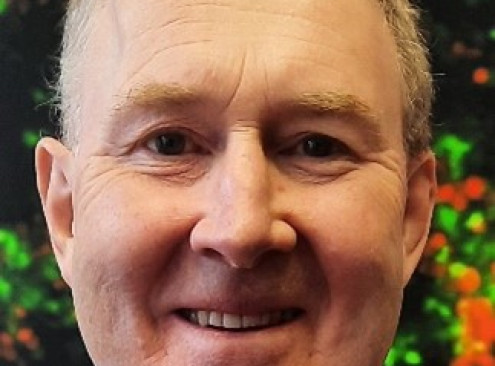
Cancer’s Mob Mentality: Organized Cell Crime in the Human Body
Samuel Jones
(Lecturer and Post Doctoral Research Associate at Cardiff University)
When it comes to disease, it should be clear who the bad guys are right? They are the ones behaving badly, causing symptoms and needing to be removed. But what happens if the heroes start serving the villains? Cancer cells are like this, manipulating normal, often helpful cells, to survive and even thrive. In this talk I will explain how these microscopic mobsters corrupt their neighbourhoods in an attempt to avoid treatment, as well as discuss how researchers in the School of Pharmacy are trying to better understand and interfere with these relationships to improve treatments for patients.
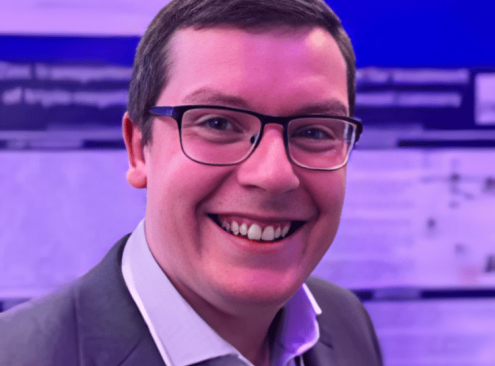
How to Train your Virus
Alan Parker
(Head of Solid Cancers, Professor of Translational Virology, Director of the Wales Applied Virology Unit and HCRW Senior Research Leader)
Viruses are just like dragons. Like dragons, in their “wild type” (disease causing) form they cause destruction, ailment and even mortality. But, just like in the film “How to train your Dragon”, it is possible to train viruses to do great good. In this talk, I will explain how my lab are learning in great detail about viruses, how they infect healthy cells, and using this information to reprogramme them so that they seek out and destroy cancer cells, rather than cause disease.
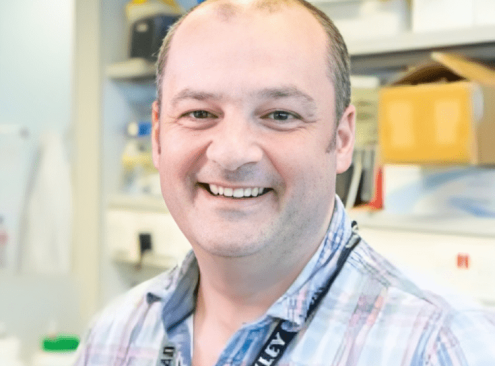
Map data © OpenStreetMap contributors.
Other Tiny Rebel events
2025-05-21
Crack the Code: From DNA to Memory
Tiny Rebel
25 Westgate Street, Cardiff, CF10 1DD, United Kingdom
2025-05-19
What Climate Change Means for Our Health
Tiny Rebel
25 Westgate Street, Cardiff, CF10 1DD, United Kingdom
